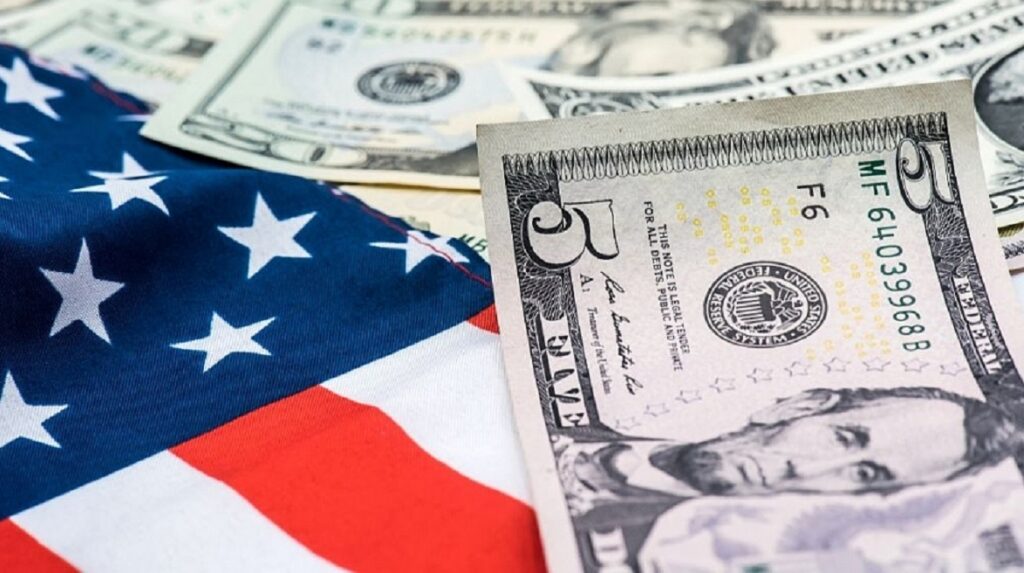By Paul Goncharoff
China quite visibly runs very large trade surpluses with the US and Europe, which are priced and paid in US dollars or euros. Every day, China earns about $3 billion USD and about half a billion euros in surplus trade just from those global regions.

Traditionally, and until fairly recent times, these trading surpluses were parked and invested in the same countries they were derived from, usually in the form of bonds, land, factories, stocks, and similar investments. This has been changing rapidly over the past two years.
China and several other countries, like Russia, have broken with tradition; instead, they are removing these surplus USD and Euros from Western banks and capitalizing on their own stand-alone banking systems. Russia had no choice, it was sanctioned into delinking from the USD and Euro due to targeted restrictions and the ban on using SWIFT, but even so, Russia serves as a clear reminder to the rest of the non-Western world that it is better to proactively begin to delink from the Western banking system before being made the object of the growing trend towards more asset freezes, confiscation, outright redirection of assets, and similar unilateral actions.
China has proactively taken the cue from seeing what happened to Russia, Iran and others; just this past quarter of 2024, it instructed its Belgian custodian, Euroclear, to liquidate $53 billion in US government bonds and notes. Doing so cost China significant trading losses, as they did not bother to wait until the paper matured and then receive their positive returns. Rates are much higher today than when China bought the bonds; therefore, selling into the secondary market would reflect higher yields and therefore lower market prices. The fact that China accepted swallowing such massive losses shows a seriously time-sensitive need to move their assets away from USD/Euro bonded debt as quickly as is practical and possible. Some have stated their opinion that this was done to support the RMB or to buy gold. This is not likely, as they have ample cash in hand to easily do both without having to incur losses as they did.
There are a great many countries, for example, the BRICS and the 80-odd nations interrelated through the BRICS and associated organizations, that are actively looking to establish an encompassing financial system, a network of banks that is completely outside of SWIFT, hence Western governmental oversight, controls, and sanctions risk. To capitalize on such a system, large pools of USD and EUR are still required to make markets and fund trade settlements. This cycles back to China, where there are ample amounts of USD and Euro in Chinese banks that can be used, or to collateralize new loans and credit facilities in any currency and create new economic growth elsewhere without the need for interacting with or through Western financial institutions.
De-dollarization is not necessarily about simply not using USD, although that plays a large and publicly visible role. If China is indeed taking those dollars received from selling their bonds and starting to establish their own financial system to deal with the USD they own, they are still de-dollarizing, but with a caveat. The US dollar system has historically relied on the dollar automatically recycling back into the United States in the form of bonds, real estate or other investments. In this way, demand for the dollar was maintained, and the US didn’t get to experience hyperinflation, especially given the propensity of the Fed to keep printing more money to keep the world’s largest deficit spending splurge ongoing.
China is setting up an entirely new banking system using gold, using RMB swap lines, and even using Bitcoin out of Hong Kong—all of this plus substantial amounts of dollars and euros. Who might want to be a part of such a system? Russia, of course. Russia also runs large trade surpluses in euros; Saudi Arabia, the UAE, and Qatar have large trading surpluses in USD and euros from those Western countries. These countries need a systemic network of banks that are completely outside the US and Europe financial system, enabling them to take their dollars and their euros and put them into their own banking system instead of being Western-controlled. This would also add the flexibility to extend credit in USD, Euro, RMB, and other national currencies and receive returns in whichever currency is desired.
As China, Russia, and many others in the BRICS network eventually create a functioning independent financial system that can also utilize USD and Euros without interfacing through or with the US or ECB financial systems, their loans, bonds, and so forth, it would be fair to call this effectively de-banking and de-dollarization at the same time. This development is happening already, and will in time have significant long-term ripple effects and implications for Western financial institutions and their systemic spheres of influence.
Autor: Paul Goncharoff – Native to Manhattan, Paul Goncharoff has lived and worked in Asia, the MENA region, Europe and, since the late 1990s, based full-time in Moscow. With his company Goncharoff LLC, he is dedicated to business management, development, integration, and consulting in relation to Russia/FSU markets, working with Russian and non-Russian companies wishing to operate in the Russian Federation and outside Russia, managing multicultural business, operations, and personnel in urban, regional, and remote areas of Russia/FSU.
(The views expressed in this article belong only to the author and do not necessarily reflect the editorial policy or views of World Geostrategic Insights).







